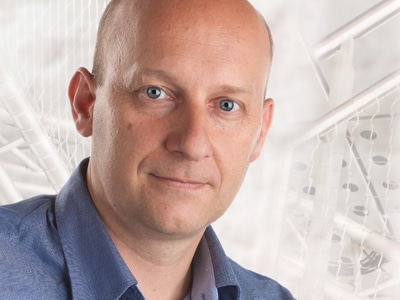In a world where economic disparities continue to widen, a resounding voice emerges, urging us to reconsider the distribution and concentration of wealth. Meet Jean-Paul Fonteijn, a freelance project manager hailing from Driebergen, The Netherlands, who has embarked on a mission of accountability to address global inequality. With a determined spirit and a revolutionary vision, he seeks to reshape economic systems and improve the lives of people around the world.
The numbers are startling: astonishingly, the richest 300 people have the same wealth as the poorest 3 billion people. The number of people it takes to fill a mid-sized commercial aircraft is more wealthy than the populations of India, China, the US, and Brazil combined. And why is that so – because we accept extreme wealth, and we allow it to destroy humanity?
But here’s the good news: a revolution is not beyond our reach. It can be peaceful if we rise together and compassionate if we care deeply about alleviating the situation. It’s evident that we cannot save humanity through national politics alone; hence, let’s strive for a peaceful movement – it has the potential to breathe new life into various aspects of our society.
According to Jean-Paul, the Super Rich Tax represents a powerful instrument in the fight against inequality and the concentration of riches. The idea centers on assessing a hefty tax rate (of 30% or more) on wealth in excess of 10 million euros. It’s a straightforward but game-changing concept: by taxing the super-rich, we can redistribute wealth and level the financial playing field.
But the Super Rich Tax Manifesto doesn’t stop there.
Jean-Paul envisions a future where corporate profits are shared more equitably. He suggests that when a company earns a profit, a significant portion, say 50%, should be distributed equally among all its employees. This way, the individuals contributing to a company’s success have a direct stake in its prosperity.
While some affluent individuals may advocate minor wealth taxes as a solution, Jean-Paul sees these suggestions as falling short of real change. He suggests that such measures might pacify those with moderate wealth, making them believe that everything will be fine if they simply follow the rules.
He calls for public pressure, urging individuals to rise and demand a change. His vision sees this process culminating in an evolutionary leap similar to monumental events that happened during the French Revolution.
Jean-Paul’s approach is refreshingly pragmatic. Instead of overhauling the economy entirely, he concentrates on modifying select areas with considerable consequences. His philosophy echoes the wisdom of philosopher Henri-Frédéric Amiel: Blending reality and ideals ensures they do not degenerate into mere fantasies or turn dangerous. His message’s central idea rests on “Super Rich Tax,” a simple exposition of advanced concepts and research.
By translating the ideas of influential thinkers like Darwin, Ricchiuti, Piketty, Tobochnik, and Harari into accessible advice, Jean-Paul helps individuals across diverse backgrounds apply these concepts to improve their lives.
Action springs from recognizing a problem; then, together, we progress into transformation. Jean-Paul’s call to action is simple: visit his website, vote for the Super Rich Tax anonymously, and explore the resources available.
You can also delve deeper into his Super Rich Tax Manifesto by downloading the PDF book. Through your participation in this movement, you make a substantial contribution to global efforts aimed at promoting accountability and fairness.
An exclusive set of individuals maintains a monopoly on wealth. That is the situation highlighted in Jean-Paul Fonteijn’s treatise with a fresh perspective needed for remodeling the economic landscape. It calls for everyone to contribute – emphasizing the need for collective accountability to create a more equitable future for all.
In a world where economic disparities continue to widen, a resounding voice emerges, urging us to reconsider the distribution and concentration of wealth. Meet Jean-Paul Fonteijn, a freelance project manager hailing from Driebergen, The Netherlands, who has embarked on a mission of accountability to address global inequality. With a determined spirit and a revolutionary vision, he seeks to reshape economic systems and improve the lives of people around the world.
The numbers are startling: astonishingly, the richest 300 people have the same wealth as the poorest 3 billion people. The number of people it takes to fill a mid-sized commercial aircraft is more wealthy than the populations of India, China, the US, and Brazil combined. And why is that so – because we accept extreme wealth, and we allow it to destroy humanity?
But here’s the good news: a revolution is not beyond our reach. It can be peaceful if we rise together and compassionate if we care deeply about alleviating the situation. It’s evident that we cannot save humanity through national politics alone; hence, let’s strive for a peaceful movement – it has the potential to breathe new life into various aspects of our society.
According to Jean-Paul, the Super Rich Tax represents a powerful instrument in the fight against inequality and the concentration of riches. The idea centers on assessing a hefty tax rate (of 30% or more) on wealth in excess of 10 million euros. It’s a straightforward but game-changing concept: by taxing the super-rich, we can redistribute wealth and level the financial playing field.
But the Super Rich Tax Manifesto doesn’t stop there.
Jean-Paul envisions a future where corporate profits are shared more equitably. He suggests that when a company earns a profit, a significant portion, say 50%, should be distributed equally among all its employees. This way, the individuals contributing to a company’s success have a direct stake in its prosperity.
While some affluent individuals may advocate minor wealth taxes as a solution, Jean-Paul sees these suggestions as falling short of real change. He suggests that such measures might pacify those with moderate wealth, making them believe that everything will be fine if they simply follow the rules.
He calls for public pressure, urging individuals to rise and demand a change. His vision sees this process culminating in an evolutionary leap similar to monumental events that happened during the French Revolution.
Jean-Paul’s approach is refreshingly pragmatic. Instead of overhauling the economy entirely, he concentrates on modifying select areas with considerable consequences. His philosophy echoes the wisdom of philosopher Henri-Frédéric Amiel: Blending reality and ideals ensures they do not degenerate into mere fantasies or turn dangerous. His message’s central idea rests on “Super Rich Tax,” a simple exposition of advanced concepts and research.
By translating the ideas of influential thinkers like Darwin, Ricchiuti, Piketty, Tobochnik, and Harari into accessible advice, Jean-Paul helps individuals across diverse backgrounds apply these concepts to improve their lives.
Action springs from recognizing a problem; then, together, we progress into transformation. Jean-Paul’s call to action is simple: visit his website, vote for the Super Rich Tax anonymously, and explore the resources available.
You can also delve deeper into his Super Rich Tax Manifesto by downloading the PDF book. Through your participation in this movement, you make a substantial contribution to global efforts aimed at promoting accountability and fairness.
An exclusive set of individuals maintains a monopoly on wealth. That is the situation highlighted in Jean-Paul Fonteijn’s treatise with a fresh perspective needed for remodeling the economic landscape. It calls for everyone to contribute – emphasizing the need for collective accountability to create a more equitable future for all.
- “As chicaadmin at The Chicago Weekly, I curate trending national and international news stories with a focus on social justice and cultural impact. My passion for journalism and commitment to independent media are fueled by my Chicago roots and belief in the power of storytelling to connect communities. Follow me on Twitter for insightful commentary and news updates!”














